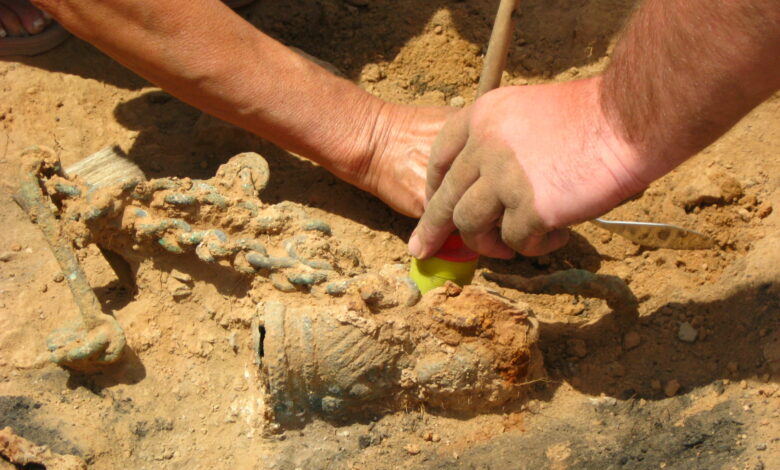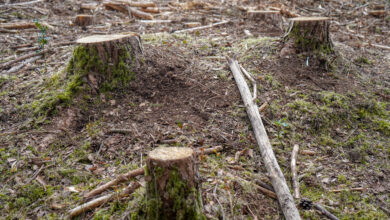Exceptionally Preserved Roman Swords Found in Israeli Cave

In a remarkable archaeological discovery, Israeli researchers have unearthed a collection of four impeccably preserved Roman swords, believed to be nearly 1,900 years old. These ancient weapons, which boast iron blades measuring 60 to 65 centimeters (24 to 26 inches) in length, were discovered in a remote crevice overlooking the Dead Sea.
The stunning find includes three swords that were still enclosed in wooden scabbards, a rare occurrence given the passage of centuries. These artifacts were located during an expedition by a team of archaeologists while they were documenting an ancient inscription on a stalactite in the cave.
Archaeologists suggest that these swords were concealed by Judean rebels after they were seized as spoils of war from the Roman army.
“This is a dramatic and exciting discovery, touching on a specific moment in time,” stated Eli Escusido, the director of the Israel Antiquities Authority (IAA), expressing his enthusiasm.
The extraordinary preservation of these swords is attributed to the dry desert climate surrounding the Dead Sea, which has created a unique time capsule. Other artifacts, including fragments of scrolls, coins dating back to the Jewish Revolt, and leather sandals, have also been discovered in a state of remarkable preservation.
However, 67 girls refused to comply with the ban and were sent home. A further dialogue with their families will occur, but if unsuccessful, they may face exclusion from school.
Fifty years ago, a stalactite in the cave containing an incomplete ink inscription written in ancient Hebrew script was uncovered. Recently, a team of experts from Ariel University, the Hebrew University of Jerusalem, and the IAA visited the cave with the aim of using multispectral photography to decipher obscured portions of the inscription.
During their exploration of the cave’s upper level, Dr. Asaf Gayer spotted a remarkably well-preserved Roman pilum, a type of javelin, in a narrow crevice. Close by, they discovered remnants of the swords’ scabbards, which held three of the swords.
Upon further investigation, the team identified these swords as Roman spatha, or long swords, and the fourth weapon as a ring-pommel sword, which is notably shorter. These swords exhibit finely crafted handles constructed from wood or metal, and accompanying leather strips as well as fragments of wood and metal were also recovered.
Archaeologists postulate that the Judean rebels seized these weapons from Roman soldiers either as booty or from the battlefield. Subsequently, these valuable artifacts were hidden away for future use, likely during the second major Jewish revolt against the Roman Empire in Judea, known as the Bar Kochba Revolt, which occurred from 132 AD to 135 AD.
Dr. Eitan Klein, a director of the Judean Desert Survey Project, expressed the team’s enthusiasm about this find, stating, “We are just beginning the research on the cave and the weapon cache discovered in it, aiming to try to find out who owned the swords, and where, when, and by whom they were manufactured.”
This discovery serves as a vivid reminder of history’s tangible traces and provides valuable insights into the military and cultural history of the region during the Roman era. Archaeologists and historians eagerly await further revelations from the ongoing research surrounding this remarkable cache of swords.





